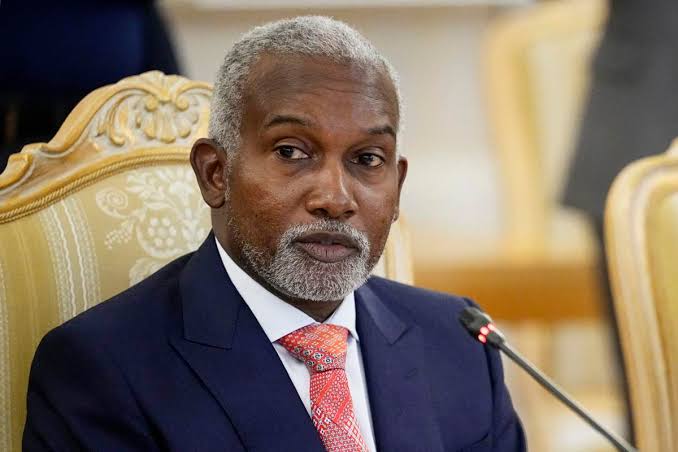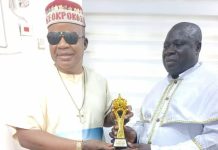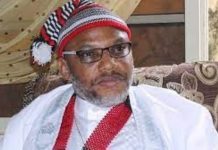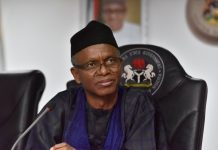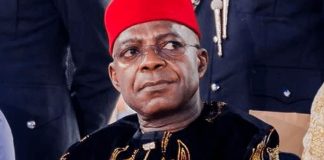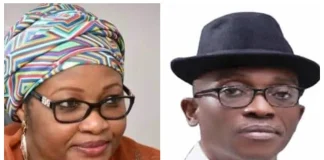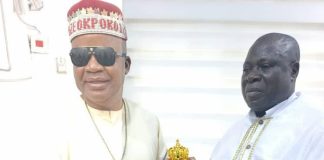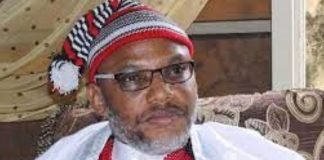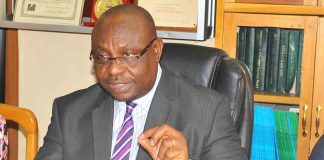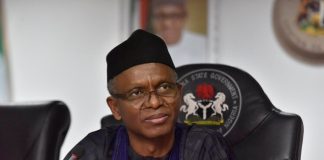🌿 Ruzu Non-Alcoholic Herbal Bitters
Ruzu Non-Alcoholic Herbal Bitters is a natural health supplement specially formulated to:
- ✅ Promote general wellness
- ✅ Detoxify the body
- ✅ Support the treatment of various ailments
Made from a powerful blend of 100% organic and medicinal herbs, Ruzu is completely alcohol-free, making it ideal for:
- 👪 All age groups
- 🌱 Health-conscious individuals
- 🌿 Anyone seeking non-alcoholic herbal remedies
Whether you're looking to boost your vitality, cleanse your system, or support healing the natural way, Ruzu Bitters offers a trusted herbal solution.
Nigeria’s Foreign Affairs Minister, Amb. Yusuf Maitama Tuggar, has urged a fresh dedication to multilateralism and an open analysis of the issues endangering world peace and governance.
In his remarks during the 3rd EU-AU Ministerial Meeting and the European Union–African Union Ministerial Follow-Up Committee in Brussels, he acknowledged the EU’s continued support for African-led projects.
In a statement released Thursday, his Special Assistant on Media and Communications Strategy, Alkasim Abdulkadir, quoted the minister as saying, “When talking about peace, security, and governance, the foreign minister of a large African country is meant to outline for his hosts the progress we have made in tackling a host of complex issues – and the outstanding challenges that only closer cooperation can resolve.”
The spread of small arms, climate change, violent extremism, irregular migration, the vulnerability of democracy, technology, commerce, and markets were among the common yet urgent challenges he listed. Urging his peers to go beyond recitation and toward sincere contemplation, Tuggar questioned the repetitive character of such conversations.
Usually, at this point, we all nod and promise to take additional group action. Indeed, there have been a lot of benefits.
However, I question if we are able to see the root reason and the most effective ways to treat the illness since we are so preoccupied with the symptoms of conflict and despair.
Referencing the wider global backdrop, the Minister cautioned of a growingly precarious global structure. We are present today as one of the most conspicuous manifestations of our belief in multilateral organizations, a rules-based international system, and the pursuit of shared solutions to shared issues.
However, he emphasized, “we know that it is a framework that has never appeared so fragile.”
He mentioned how non-state actors, misinformation, and unregulated digital currencies can be disruptive and present existential threats to both wealthy and developing countries.
Notwithstanding these obstacles, Tuggar reiterated Nigeria’s faith in multilateralism and the potential of strategic alliances.
He emphasized the African Continental Free Trade Area’s potential, Nigeria’s ownership of the European Bank for Reconstruction and Development, and regional benefits within ECOWAS, such as the ability for African youth to freely travel around as a viable economic option.
Nigeria’s long-standing demands for UN reform, fair trade, and equal access to money were reiterated by him. “Nigeria believes that agencies survive only when they can adapt to circumstance,” he stated. “We now face even greater uncertainty into that emerging vacuum because not much was done.”
Read Also: BREAKING: Suspected Herdsmen Murder Newly-Married Soldier in Benue
He talked on how African countries are under internal pressure to live up to the growing expectations of their constituents while having limited resources.
He cautioned, “It’s a process that crowds out serious debate and empowers political snake oil salesmen,” adding that although there have been a number of coups in West Africa recently, “the crisis of democracy is global.”
Tuggar drew on his experience as Nigeria’s ambassador to Germany to discuss the concurrent success of two classic books, Origins of Totalitarianism by Hannah Arendt and Camp des Saints by Jean Raspail.
“We ought to acknowledge the anxieties articulated in the former and the teachings in the latter,” he stated. “We cannot permit our rights to overshadow our obligations. The truth cannot be chosen or rejected based on personal preference like a shop.
He made a scathing assessment on the disparate reactions to hate speech and misinformation around the world in his conclusion.
“When hate speech occurs online, arrests are made; in Africa, it is the cost of freedom,” we were informed.

